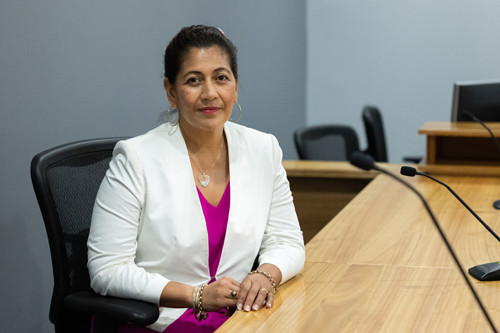University of Waikato Vice-Chancellor, Professor Neil Quigley, has returned from Bangkok, Thailand, where he spoke at the Times Higher Education Global Sustainable Development Congress.

The four-day congress, co-hosted by Thailand’s Ministry of Higher Education, Science, Research and Innovation, brought together 3,000 global leaders and innovators from 100 countries to discuss solutions to the challenges in making the world more sustainable.
It served as a call to action for global universities and businesses to pivot their education, research, innovation and outreach programmes toward tangible outcomes.
The University is committed to aligning its research with the United Nations’ Sustainable Development Goals (SDGs) to demonstrate and encourage collaboration to address humanity's most pressing challenges to create a fairer, safer and more peaceful world.
In a session on health, wellbeing and demography, Professor Quigley led a panel discussion on how innovation in engineering is shaping health monitoring, healthcare delivery, support and training.

The panel members drew on examples of research and investable technologies from the University of Newcastle, a partner university of the University of Waikato, Hong Kong Baptist University and Verge HealthTech Fund.
The panel identified approaches to ensuring that advancements in healthcare technology are accessible to everyone, particularly those in remote and low-income communities.
Professor Quigley was also part of a panel discussion about education, gender equality and reducing inequalities.
Moderated by the University of Newcastle and included the Asian Institute of Technology, CIFAL Philippines and the Nanyang Technological University, the group spoke about how universities and CIFAL centres (International Training Centres for Local Authorities and Local Actors) achieve the sustainable development goals in gender equity and education and address inequality.
“By sharing our successes and challenges, we can better strategise and implement effective measures to promote inclusivity and equality in education and beyond,” Professor Quigley says.



